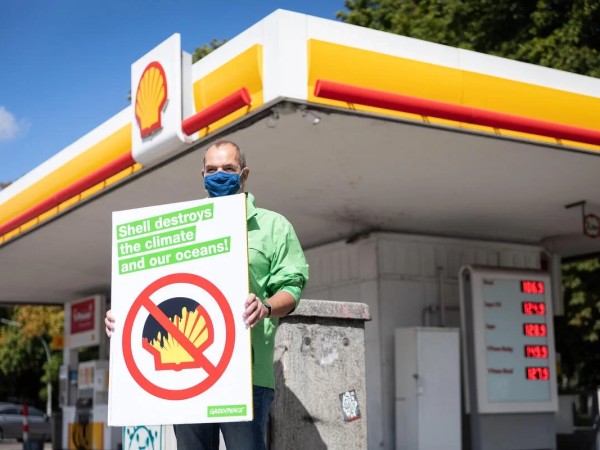Energy giant Royal Dutch Shell vowed to eliminate net carbon emissions by 2050, raising its ambition from previous targets, as its oil output declines from a 2019 peak.
The Anglo-Dutch company is in the midst of its largest overhaul yet as it prepares to expand its renewables and low-carbon business in the face of growing investor pressure on the oil and gas sector to battle climate change.
Shell last year laid out a plan to reach net zero by 2050, in line with the Paris climate agreement and European Union ambitions, but it said the goal depended on its customers.
In a strategy update on Thursday, Shell outlined plans to curb its emissions through rapid growth of its low-carbon businesses, including biofuels and hydrogen, although spending will stay tilted towards oil and gas in the near future.
“We will use our established strengths to build on our competitive portfolio as we make the transition,” CEO Ben van Beurden said in a statement.
Investors welcomed the upgraded targets.
“Shell’s net zero target is industry-leading and comprehensive as it covers all their carbon emissions,” Adam Matthews, Director of Ethics & Engagement for the Church of England Pensions Board, who led investor engagement with Shell, said in a statement.
Shareholders have an advisory vote on Shell’s transition plan at this year’s general meeting, an industry first, Matthews added.
Although such votes would be non-binding, investors see them as a mechanism to hold management publicly accountable for their progress on meeting targets to cut emissions.
Shell shares were down 1.9% at 1142 GMT at 1337 pence, dragging on the FTSE 100 index.
Historically, oil projects have delivered a return on investment of at least 15%, while renewables developers expect 6%-9%, but Shell and BP have said their complex marketing and trading units can increase renewable returns to around 10%.
Shell’s strategy is to remain reliant on its retail business, the world’s largest. It has a goal to increase the number of sites to 55,000 by 2025 from today’s 46,000 and increase the number of electric vehicle charging points to 500,000 from 60,000 now.
It did not outline plans to grow its solar and wind power generation capacity, marking a difference from rivals, such as BP and Total, which aim to boost their ownership of physical wind and solar farms.















